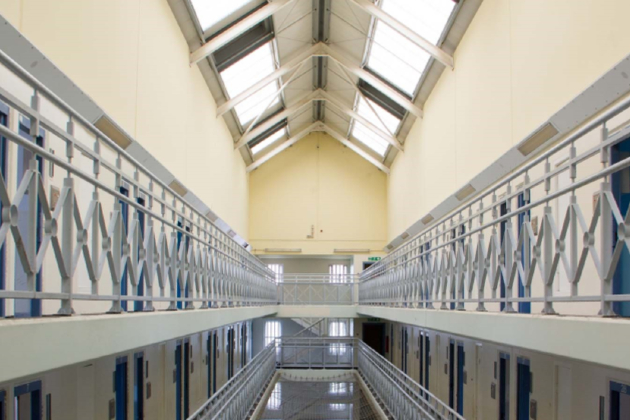Jessica is a Clinical Lead Nurse for Sexual Assault Response Coordination Services (SARCS) Network in Scotland, a senior charge nurse in police custody and forensic examination services.
She is also Associate Programme Lead for Advanced Forensic Nursing Practice at Queen Margaret University, Edinburgh. She tells us what her job entails, and what makes it unique in the nursing world.
How would you describe your job?
I’d say it’s professional leadership and the practical development of strategy in police custody health care and SARCS. The aim is to prepare the best possible workforce to serve the needs of our patients and communities.
How did you get to this point in your career?
I’m a registered nurse in adult and mental health nursing, a qualified sexual offences examiner nurse in advanced forensic practice, and a non-medical prescriber.
I started in adult nursing, went through different departments such as trauma, emergency and critical care, and then moved into psychiatry.
Here I learned about health inequalities, such as poverty and trauma and what that meant for patient care. I also learned that if these needs were consistently not met, how this could lead to further problems such as patients coming into the justice system.
What are 5 things you do in an average week?
- Chair national meetings for the SARCS network and work hand in hand with the SARCS policy unit at the Scottish government.
- Plan education, training, and pathways of care, ensuring they’re inclusive. There’s a big programme of events that always needs planning and input.
- Take data and discover if there are new trends to address in drug use, violence and how those patients presented to the service.
- Interpret and analyse what we need to do to improve services so they’re in the best possible shape for our patients, communities, staff and justice response. This means a lot of thinking ahead as well as working backwards to make sure what we need is fought for, planned and in place. This ensures that we can future-proof the services we offer.
- Support clinical staff and spend time with them. I also make sure to spend time seeing patients if I can.
What things do you do in this role that other nursing staff don’t?
I plan and prepare strategy to build a nursing workforce that is trained to provide forensic examination to people who have been recently sexually assaulted or raped. This is a vital part of having a well-prepared nursing specialty to recognise and match the needs of our population.
Do you work with any specialist equipment?
Tamper-evident bags. In forensic nursing, a chain of evidence is paramount. It might just look like a plastic bag, but trust me, more cases can be lost in the treatment room than in the courtroom. I never want that to happen on our watch.
Are there any specialist procedures?
A forensic examination in mental health custody is called "fitness". It’s used for detention, charge, interview, court and release.
These examinations inform police investigations, the court, and the safety of the person during their time in custody. The process also takes into account their vulnerabilities and other people who may be vulnerable because of their actions.
Forensic medical examinations (FME) for suspects in drink and drug driving cases – and FME within SARCs – involve the collection of evidential samples and documentation of injuries, alongside the protection from re-traumatisation and the beginning of the person's recovery.
What are 5 key qualities someone needs to do this job?
Courage, curiosity, technical ability, caring and smartness.
What’s most challenging thing about the job?
It has changed my worldview. It can make you sad.
And the most rewarding?
You turn that sorrow into action, so you can change things. I work with incredible people. Never underestimate how the system can change things for the better when pulled in the right direction.
What would you say to someone who was looking into becoming a forensic nurse specialist?
Ask yourself why. Then work on any biases you may have. We all have them. Challenge them.
Work on diplomacy and leadership. You will work alongside powerful organisations that need you and have their own public service to deliver.
Bring kindness and humour learned from your experience and remember that sometimes, you will be meeting people on the worst day of their lives. You will never want to leave, so get your clinical experience from other areas up to date and bring it with you.
More information
Find out more and join the RCN Nursing in Justice and Forensic Health Care Forum.








